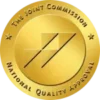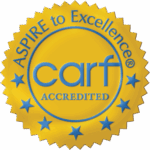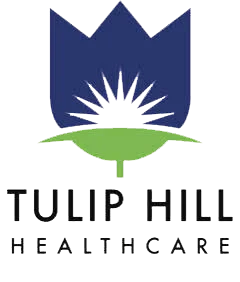Table of contents
Partial Hospitalization Programs in Tennessee and Kentucky
→ Contributors

Board-Certified Psychiatrist and Addictionologist

Board Certified Clinical Social Worker

Medically Reviewed By:
Dr. Vahid Osman, M.D.Board-Certified Psychiatrist and Addictionologist
Dr. Vahid Osman is a Board-Certified Psychiatrist and Addictionologist who has extensive experience in skillfully treating patients with mental illness, chemical dependency and developmental disorders. Dr. Osman has trained in Psychiatry in France and in Austin, Texas. Read more.

Clinically Reviewed By:
Josh Sprung, L.C.S.W.Board Certified Clinical Social Worker
Joshua Sprung serves as a Clinical Reviewer at Tennessee Detox Center, bringing a wealth of expertise to ensure exceptional patient care. Read More
→ Sources
- Assistant Secretary for Public Affairs (ASPA). (2021, November 11). Warning signs for bullying. StopBullying.gov. https://www.stopbullying.gov/warning-signs/index.html
- Bell, T. M., Raymond, J., Vetor, A., Mongalo, A., Adams, Z., Rouse, T., & Carroll, A. (2019). Long-term prescription opioid utilization, substance use disorders, and opioid overdoses after adolescent trauma. The Journal of Trauma and Acute Care Surgery, 87(4), 836–844. https://doi.org/10.1097/TA.0000000000002357
- Bowler, A. (2024, July 30). Isolation among Generation Z in the United States. Ballard Brief. https://ballardbrief.byu.edu/issue-briefs/isolation-among-generation-z-in-the-united-states
- Carvalho, S. A., & Carona, C. (2025). Improving mental health practice with boys and men: Core challenges and guidance for clinicians. BJPsych Advances, 31(3), 181–191. https://doi.org/10.1192/bja.2024.41
- Centers for Disease Control and Prevention. (n.d.). E-cigarette use among youth. https://www.cdc.gov/tobacco/basic_information/e-cigarettes/youth
- Centers for Disease Control and Prevention. (n.d.-a). About underage drinking. https://www.cdc.gov/alcohol/fact-sheets/underage-drinking.htm
- Centers for Disease Control and Prevention. (n.d.-c). Substance use among youth. https://www.cdc.gov/youth-substance-use
- Cohen, S. (2024, April 3). Girls are struggling with their mental health. Here’s what parents can do. UCLA Health. https://www.uclahealth.org/news/girls-mental-health-parents
- Compass Health Center. (2025, June 20). Teen mental health facts and statistics 2024. https://compasshealthcenter.net/teen-mental-health-facts-and-statistics
- Dube, S. R., Anda, R. F., Whitefield, C. L., Brown, D. W., Felitti, V. J., Dong, M., & Giles, W. H. (2005). Long-term consequences of childhood sexual abuse by gender of victim. American Journal of Preventive Medicine, 28(5), 430–438. https://doi.org/10.1016/j.amepre.2005.01.015
- Foy, C. (2022, July 22). Addiction and children of divorce – what the stats reveal. FHE Health. https://fherehab.com/learning/addiction-and-children-of-divorce
- Gansner, M., Horton, A. K., Singh, R., & Schuman-Olivier, Z. (2025). Exploring relationships between social media use, online exposure to drug-related content, and youth substance use in real time: A pilot ecological momentary assessment study in a clinical sample of adolescents and young adults. Frontiers in Child and Adolescent Psychiatry, 2, 1460539. https://doi.org/10.3389/frcha.2024.1460539
- Granite Hills Hospital. (2024, May 13). Anxiety in teens: Causes, symptoms & treatment. https://www.granitehillshospital.com/anxiety-in-teens
- Gray, K. M., & Squeglia, L. M. (2018). Research review: What have we learned about adolescent substance use? Journal of Child Psychology and Psychiatry, 59(6), 618–627. https://doi.org/10.1111/jcpp.12883
- Hamdan, S., Melhem, N. M., Porta, G., Song, M. S., & Brent, D. A. (2013). Alcohol and substance abuse in parentally bereaved youth. The Journal of Clinical Psychiatry, 74(8), 828–834. https://doi.org/10.4088/JCP.12m08167
- Johns Hopkins Medicine. (2024, October 30). Depression in teens and children. https://www.hopkinsmedicine.org/health/conditions-and-diseases/depression/depression-in-children-and-teens
- Mayo Foundation for Medical Education and Research. (2022, August 12). Teen depression. Mayo Clinic. https://www.mayoclinic.org/diseases-conditions/teen-depression
- Mayo Foundation for Medical Education and Research. (2025, June 20). Drug addiction (substance use disorder). Mayo Clinic. https://www.mayoclinic.org/diseases-conditions/drug-addiction
- Mental Health America. (n.d.). Loneliness is hard (for kids and teens). https://www.mhanational.org/
- National Center for Education Statistics. (n.d.). The NCES Fast Facts of Bullying. U.S. Department of Education. https://nces.ed.gov/fastfacts/display.asp?id=719
- Partnership to End Addiction. (2024, September 3). Signs of drug use in teens. https://drugfree.org/article/signs-drug-use-teens
- Ramo, D. E., & Costello, C. R. (n.d.). Social media and substance use: What should we be recommending to teens and their parents? Journal of Adolescent Health, 57(2), 145–146. https://doi.org/10.1016/j.jadohealth.2015.04.003
- Sams, J. (2024, September 17). Signs of teen substance abuse: What medical professionals look for. NursingEducation.org. https://www.nursingeducation.org/signs-of-teen-substance-abuse
- SHADAC Staff & External Authors. (2025, January 6). During the pandemic, drug overdoses became the third leading cause of death for U.S. adolescents. SHADAC. https://www.shadac.org/news/during-pandemic-drug-overdoses-became-third-leading-cause-death-us-adolescents
- Sheikh, A., Payne-Cook, C., Lisk, S., Carter, B., & Brown, J. S. L. (2024). Why do young men not seek help for affective mental health issues? A systematic review of perceived barriers and facilitators among adolescent boys and young men. BMC Psychiatry, 24, 529. https://doi.org/10.1186/s12888-024-05832-6
- Smith, M., Robinson, L., Segal, J., & Reid, S. (2025, January 16). Parent’s guide to teen depression. HelpGuide.org. https://www.helpguide.org/articles/depression/parents-guide-to-teen-depression.htm
- Twenge, J. M., Haidt, J., Blake, A. B., McAllister, C., Lemon, H., & Le Roy, A. (2021). Worldwide increases in adolescent loneliness. Journal of Adolescence, 93, 257–269. https://doi.org/10.1016/j.adolescence.2021.06.006
- U.S. Department of Health and Human Services. (2022, June 13). What are the signs of having a problem with drugs? National Institute on Drug Abuse. https://nida.nih.gov/publications/drugfacts/understanding-drug-use-addiction
- U.S. Department of Health and Human Services. (2023). Our epidemic of loneliness and isolation: The U.S. Surgeon General’s advisory on the healing effects of social connection and community. https://www.hhs.gov/surgeongeneral/priorities/loneliness/index.html
- U.S. Department of Health and Human Services. (2023). Social media and youth mental health. https://www.hhs.gov/sites/default/files/social-media-and-youth-mental-health.pdf
- U.S. Department of Health and Human Services. (2024, December 17). Reported use of most drugs among adolescents remained low in 2024. National Institutes of Health. https://nida.nih.gov/news-events/news-releases/2024/12/reported-use-of-most-drugs-among-adolescents-remained-low-in-2024
- U.S. Department of Health and Human Services. (2025, June 27). Drugs A to Z. National Institute on Drug Abuse. https://nida.nih.gov/drugs-abuse
- U.S. Department of Health and Human Services, Office of Population Affairs. (n.d.). Mental health for adolescents. https://opa.hhs.gov/adolescent-health/mental-health-adolescents
- U.S. Department of Health and Human Services. (n.d.). The Teen Brain: 7 things to know. National Institute of Mental Health. https://www.nimh.nih.gov/health/publications/the-teen-brain-7-things-to-know
- Waldron, M., Grant, J. D., Bucholz, K. K., Lynskey, M. T., Slutske, W. S., Glowinski, A. L., Henders, A., Statham, D. J., Martin, N. G., & Heath, A. C. (2014). Parental separation and early substance involvement: Results from children of alcoholic and cannabis dependent twins. Drug and Alcohol Dependence, 134, 78–84. https://doi.org/10.1016/j.drugalcdep.2013.09.017
- Whitesell, M., Bachand, A., Peel, J., & Brown, M. (2013). Familial, social, and individual factors contributing to risk for adolescent substance use. Journal of Addiction. https://doi.org/10.1155/2013/579310
- World Health Organization. (2022, June 22). Mental health. https://www.who.int/news-room/fact-sheets/detail/mental-health-strengthening-our-response
- Zeratsion, H. C. B. B. (2014, June 13). Does parental divorce increase risk behaviors among 15/16 and 18/19 year-old adolescents? A study from Oslo, Norway. Clinical Practice and Epidemiology in Mental Health, 10, 101–110. https://doi.org/10.2174/1745017901410010101
→ Accreditations & Licenses









The Joint Commission – The Gold Seal of Approval® signifies that Tulip Hill Healthcare meets or exceeds rigorous national standards for patient care, safety, and quality.

LegitScript Certified – Confirms compliance with laws and standards for transparency and ethical marketing in addiction treatment.

BBB Accredited – Demonstrates Tulip Hill Healthcare’s commitment to ethical business practices and community trust.

Psychology Today Verified – Indicates a verified listing on Psychology Today for trustworthy treatment services.
HIPAA Compliant – Ensures patient information is protected under federal privacy regulations.

ASAM Member – Reflects a commitment to science-based addiction treatment as a member of the American Society of Addiction Medicine.

Nashville Chamber of Commerce Member – Signifies active engagement in community and regional development efforts.

CARF Accredited – Demonstrates that Tulip Hill Healthcare meets internationally recognized standards for quality, accountability, and service excellence in behavioral health care.
Did you know that your insurance plan may cover medical detox?
Complete a free, confidential Verification of Benefits to learn more about what resources may be available to you.
Supporting Families Through Recovery
Get Family Support Now
We understand addiction affects the whole family. Our comprehensive family program helps rebuild trust and restore relationships.
Weekly Family Therapy Sessions
Educational Workshops
Support Groups
Communication Skills Training
What Our Patients Say: Stories of Hope and Recovery
Real Testimonials
Hear directly from those who have walked the path to recovery. Our patients’ stories highlight the compassionate care, effective programs, and life-changing support they’ve experienced. Let their journeys inspire you as you take your first steps toward healing.
I can't say enough good things about Tulip Hill Healthcare. The staff are incredibly compassionate, attentive, and professional — they treat every patient with dignity and kindness. The care team communicated regularly with us, keeping us informed and involved in every step. I would highly recommend to anyone looking for care
I cannot say enough about the incredible care and support offered by Tulip Hill. From the moment I walked through the doors, I was met with warmth and understanding. The staff are truly compassionate professionals who are deeply dedicated to their clients’ recovery.
The treatment programs are comprehensive and evidence-based, offering a perfect blend of one-on-one therapy, group counseling, and holistic services like mindfulness. What stood out most was how individualized the care was. The environment is clean, peaceful, and designed to help clients feel safe and supported.
If you or someone you love is struggling with addiction, I wholeheartedly recommend Tulip Hill Healthcre. They don’t just help you get sober — they help you rebuild your life.
The treatment programs are comprehensive and evidence-based, offering a perfect blend of one-on-one therapy, group counseling, and holistic services like mindfulness. What stood out most was how individualized the care was. The environment is clean, peaceful, and designed to help clients feel safe and supported.
If you or someone you love is struggling with addiction, I wholeheartedly recommend Tulip Hill Healthcre. They don’t just help you get sober — they help you rebuild your life.
Tulip Hill Healthcare is truly a hidden gem in Tennessee. From the moment you walk through the doors, you’re met with warmth, compassion, and professionalism. The entire staff — from the front desk to the clinical team — goes above and beyond to make patients feel seen, heard, and genuinely cared for.
The level of individualized attention and support is unmatched. They take the time to really understand each person’s needs and tailor care accordingly, whether it’s for mental health, addiction recovery, or dual diagnosis treatment. The environment is clean, peaceful, and thoughtfully designed to promote healing and personal growth.
What really sets Tulip Hill apart is their dedication to holistic wellness — they don’t just treat symptoms, they help people rebuild their lives. The therapists and counselors are incredibly skilled, compassionate, and invested in their patients' success. You can tell they care deeply.
If you’re looking for a place that treats you with dignity, encourages transformation, and supports your healing journey every step of the way, I can’t recommend Tulip Hill Healthcare enough. They truly change lives.
The level of individualized attention and support is unmatched. They take the time to really understand each person’s needs and tailor care accordingly, whether it’s for mental health, addiction recovery, or dual diagnosis treatment. The environment is clean, peaceful, and thoughtfully designed to promote healing and personal growth.
What really sets Tulip Hill apart is their dedication to holistic wellness — they don’t just treat symptoms, they help people rebuild their lives. The therapists and counselors are incredibly skilled, compassionate, and invested in their patients' success. You can tell they care deeply.
If you’re looking for a place that treats you with dignity, encourages transformation, and supports your healing journey every step of the way, I can’t recommend Tulip Hill Healthcare enough. They truly change lives.
The team and staff at Tulip Hill are amazing to work with and provide top notch care. They are locally owned and operated by some of the best people I know. I’ve not personally been here, but I have sent family here and would do it again in a heartbeat!
Tulip Hill Healthcare has an exceptional team of caring and compassionate professionals who truly go above and beyond for their patients. The staff is knowledgeable, attentive, and always willing to answer questions or provide support. You can tell they genuinely care about the well-being of everyone who walks through their doors!
Tulip Hill saved my cousins life. When he got there he was broken and lost. Now his life is rejuvenated. The amount of one on one therapy he got, mixed with his process group was exactly the combination he needed to walk out a new man. Now he’s helping others and a productive member of society. Everything from our first call with Jake was top notch. God Bless Tulip Hill
Tulip Hill Healthcare is a highly reputable, and experienced team of passionate professionals who continuously strive to provide the highest level of care for their clients. I would highly recommend their facilities to anyone in need.
When addiction or mental health challenges become overwhelming, finding the right level of care can make all the difference in your recovery journey. A Partial Hospitalization Program (PHP) can offer a structured, intensive treatment option that bridges the gap between inpatient care and traditional outpatient services, providing comprehensive support while allowing you to maintain connections to your daily life.
PHP rehab represents a crucial step for many individuals who need more than weekly therapy sessions but don’t require 24-hour residential care. This treatment approach has proven particularly effective for those dealing with substance use disorders, mental health conditions, or co-occurring disorders that require intensive intervention and support.
Understanding your treatment options empowers you to make informed decisions about your recovery path. Whether you’re considering PHP drug rehab for yourself or a loved one, Tulip Hill Healthcare is here to help. Our network of PHP rehabilitation facilities in TN and KY provide personalized treatment plans tailored to your unique needs and sobriety goals.
What is PHP and How Does it Work?
For those wondering what does PHP stand for in rehab, Partial Hospitalization Programs provide intensive, structured treatment typically lasting 4-6 hours per day, 5-7 days per week. Unlike inpatient treatment, a PHP recovery program allows participants to return home each evening, maintaining important family and community connections while receiving comprehensive care.
The program structure includes individual therapy sessions, group counseling, psychiatric services, medication management, and specialized therapeutic activities. Participants engage in evidence-based treatments such as cognitive-behavioral therapy, dialectical behavior therapy, and trauma-informed care approaches.
PHP substance abuse programs operate on a schedule that accommodates various needs. For example, morning programs typically run from 9 AM to 2 PM, while afternoon sessions may span from 1 PM to 6 PM. This flexibility allows individuals to work around existing commitments while prioritizing their recovery. At Tulip Hill Healthcare, our PHP addiction treatment programs run at different times, so you can find one that works to fit your lifestyle.
PHP treatment teams consist of licensed clinicians, psychiatrists, nurses, and specialized therapists who collaborate to create individualized treatment plans. Each person’s unique circumstances, challenges, and goals shape their specific therapeutic approach and recovery timeline.
Benefits of PHP in Addiction and Mental Health Treatment in Tennessee and Kentucky
A PHP program for substance abuse offers several distinct advantages that make it an ideal choice for many individuals seeking recovery. The intensive nature of the program provides comprehensive support while maintaining personal autonomy and real-world connections.
-
Comprehensive Care Without Full Hospitalization
PHP delivers hospital-level treatment intensity without requiring overnight stays. This approach allows individuals to practice newly learned coping skills in their home environment while having immediate access to professional support during challenging moments.
-
Smooth Transition Between Care Levels
Many people use PHP addiction treatment as a step-down from inpatient treatment or as a step-up from standard outpatient care. This flexibility ensures continuity of care and appropriate treatment intensity based on individual needs and progress.
-
Real-World Application
Returning home each day allows participants to immediately apply therapeutic techniques and coping strategies in their actual living environment. This real-time practice with professional guidance significantly improves skill retention and long-term success rates.
-
Family and Community Integration
PHP alcohol rehab or drug rehab enables individuals to maintain important relationships and responsibilities while receiving intensive treatment. Family members can participate in therapy sessions and educational programs, creating a stronger support network for sustained recovery.
-
Cost-Effective Treatment
Compared to residential treatment, PHP typically costs significantly less while providing similar therapeutic benefits. Most insurance plans recognize PHP as a medically necessary treatment, making it accessible to a broader range of individuals.
Partial Hospitalization Programs (PHP) at Tulip Hill Healthcare
Tulip Hill Healthcare specializes in providing comprehensive PHP services across multiple locations in Tennessee and Kentucky. Our PHP program rehab centers in TN and KY emphasize individualized treatment that addresses both addiction and co-occurring mental health conditions through evidence-based therapeutic methods.
Our treatment philosophy centers on dual diagnosis care, recognizing that many individuals struggle with both substance use disorders and mental health challenges simultaneously. This integrated approach ensures all aspects of a person’s well-being receive appropriate attention and treatment.
Clinical teams at Tulip Hill Healthcare’s network of facilities include licensed therapists, psychiatrists, nurses, and specialized counselors who work collaboratively to develop personalized treatment plans. These plans incorporate various therapeutic modalities including cognitive-behavioral therapy, trauma-informed care, medication management, and holistic wellness activities.
Group therapy sessions form a cornerstone of the PHP experience, allowing participants to connect with others facing similar challenges while learning from shared experiences. Individual therapy provides personalized attention to address specific concerns and develop customized coping strategies. In short, if you’re looking for a PHP treatment center that offers comprehensive care and values the uniqueness of each individual, then look no further than our PHP addiction treatment centers.
IOP vs Other Treatment Levels
When exploring treatment options, it’s important to understand how an Intensive Outpatient Program (IOP) compares to other levels of care. Each level is designed for different stages of recovery and different client needs. Here’s how IOP treatment stacks up against other common programs.
Locations in Tennessee and Kentucky
Tulip Hill Healthcare operates multiple facilities strategically located throughout Tennessee and Kentucky, ensuring accessible care for individuals across both states. Whether you’re looking for a PHP in Nashville, Tennessee, Kentucky, or nearby, there’s a facility that can help you stay clean nearby.
Tennessee Locations:

Tulip Hill Recovery – Drug Rehab in Tennessee
Tulip Hill Recovery serves as our flagship center where hope takes root, and healing begins. Our experienced team of professionals specializes in treating drug and alcohol addiction alongside primary mental health conditions. With a focus on dual diagnosis, we tailor our approach to meet the unique needs of each individual, combining therapeutic modalities such as cognitive-behavioral therapy, medication management, and personalized counseling.

Tennessee Detox Center – Medical Detox Nashville, TN
In Nashville, Tennessee, Tennessee Detox Center provides expert medical detox for alcohol and drug addiction, guiding individuals safely through withdrawal with compassionate, 24/7 medical supervision.
Our multidisciplinary team creates personalized, evidence-based treatment plans—combining medication-assisted therapy, individual and group counseling, and holistic wellness activities—to address both physical dependence and co-occurring mental health needs.
Situated in a private, upscale facility near Brentwood and Franklin, we offer a serene, supportive community dedicated to healing and lifelong sobriety
Kentucky Locations:

Louisville Addiction Center – Kentucky Rehab Center
In Kentucky, the Louisville Addiction Center offers hope for individuals seeking freedom from addiction and mental health struggles. Our expert clinicians are equipped with the knowledge and tools to address a wide range of substance use disorders and mental health conditions. We emphasize a patient-centered approach, creating personalized treatment plans that foster resilience, self-discovery, and lasting sobriety. Here, you’ll find a supportive community dedicated to wellness, offering a safe space to heal and rebuild.

Lexington Addiction Center – Drug Rehab in Kentucky
The Lexington Addiction Center, another vital part of our Kentucky presence, provides a comprehensive continuum of care designed to empower individuals on their journey to recovery. Our multidisciplinary team adopts an integrative treatment model that addresses the psychological, social, and physiological facets of addiction and mental health. From intensive outpatient programs to ongoing support groups, we provide the resources and support necessary to navigate the challenges of recovery while fostering personal growth and enduring change.
Individualized Treatment Approach
Tulip Hill Healthcare prides itself on providing truly individualized treatment that recognizes each person’s unique circumstances, challenges, and strengths. This personalized approach begins with comprehensive assessments that evaluate medical history, substance use patterns, mental health status, and psychosocial factors.
Treatment planning involves collaborative discussions between clinical staff and participants to establish realistic, achievable goals. These plans remain flexible and adapt as individuals progress through their recovery journey, ensuring treatment remains relevant and effective.
Individual therapy sessions allow for deep exploration of personal issues, trauma history, and specific triggers that contribute to addiction or mental health challenges. Therapists work with participants to develop personalized coping strategies and relapse prevention techniques.
Group therapy complements individual work by providing peer support and shared learning experiences. Groups are carefully structured to ensure appropriate fit based on factors like age, gender, specific substances of abuse, or co-occurring mental health conditions.
Family involvement is encouraged when appropriate and beneficial. Family therapy sessions and educational programs help repair relationships damaged by addiction while building stronger support systems for long-term recovery success.
Insurance and Accessibility
Tulip Hill Healthcare accepts most PPO and EPO employer-sponsored insurance plans, making PHP treatment accessible to individuals with various insurance coverage options. The admissions team provides free, confidential verification of benefits to help individuals understand their coverage and potential out-of-pocket costs.
Insurance providers increasingly recognize PHP as a medically necessary level of care for treating addiction and mental health disorders. This recognition has improved coverage options and reduced barriers to accessing intensive treatment services.
For individuals without insurance or with limited coverage, Tulip Hill Healthcare works to identify alternative funding options and payment arrangements. The goal is ensuring that financial constraints don’t prevent access to necessary treatment services.
The verification of benefits process helps individuals and families plan for treatment costs and understand what services are covered. This transparency allows for informed decision-making about treatment options and financial planning.
What Our Patients Say: Stories of Hope and Recovery
Hear directly from those who have walked the path to recovery
I can't say enough good things about Tulip Hill Healthcare. The staff are incredibly compassionate, attentive, and professional — they treat every patient with dignity and kindness. The care team communicated regularly with us, keeping us informed and involved in every step. I would highly recommend to anyone looking for care
I cannot say enough about the incredible care and support offered by Tulip Hill. From the moment I walked through the doors, I was met with warmth and understanding. The staff are truly compassionate professionals who are deeply dedicated to their clients’ recovery.
The treatment programs are comprehensive and evidence-based, offering a perfect blend of one-on-one therapy, group counseling, and holistic services like mindfulness. What stood out most was how individualized the care was. The environment is clean, peaceful, and designed to help clients feel safe and supported.
If you or someone you love is struggling with addiction, I wholeheartedly recommend Tulip Hill Healthcre. They don’t just help you get sober — they help you rebuild your life.
The treatment programs are comprehensive and evidence-based, offering a perfect blend of one-on-one therapy, group counseling, and holistic services like mindfulness. What stood out most was how individualized the care was. The environment is clean, peaceful, and designed to help clients feel safe and supported.
If you or someone you love is struggling with addiction, I wholeheartedly recommend Tulip Hill Healthcre. They don’t just help you get sober — they help you rebuild your life.
Tulip Hill Healthcare is truly a hidden gem in Tennessee. From the moment you walk through the doors, you’re met with warmth, compassion, and professionalism. The entire staff — from the front desk to the clinical team — goes above and beyond to make patients feel seen, heard, and genuinely cared for.
The level of individualized attention and support is unmatched. They take the time to really understand each person’s needs and tailor care accordingly, whether it’s for mental health, addiction recovery, or dual diagnosis treatment. The environment is clean, peaceful, and thoughtfully designed to promote healing and personal growth.
What really sets Tulip Hill apart is their dedication to holistic wellness — they don’t just treat symptoms, they help people rebuild their lives. The therapists and counselors are incredibly skilled, compassionate, and invested in their patients' success. You can tell they care deeply.
If you’re looking for a place that treats you with dignity, encourages transformation, and supports your healing journey every step of the way, I can’t recommend Tulip Hill Healthcare enough. They truly change lives.
The level of individualized attention and support is unmatched. They take the time to really understand each person’s needs and tailor care accordingly, whether it’s for mental health, addiction recovery, or dual diagnosis treatment. The environment is clean, peaceful, and thoughtfully designed to promote healing and personal growth.
What really sets Tulip Hill apart is their dedication to holistic wellness — they don’t just treat symptoms, they help people rebuild their lives. The therapists and counselors are incredibly skilled, compassionate, and invested in their patients' success. You can tell they care deeply.
If you’re looking for a place that treats you with dignity, encourages transformation, and supports your healing journey every step of the way, I can’t recommend Tulip Hill Healthcare enough. They truly change lives.
The team and staff at Tulip Hill are amazing to work with and provide top notch care. They are locally owned and operated by some of the best people I know. I’ve not personally been here, but I have sent family here and would do it again in a heartbeat!
Tulip Hill Healthcare has an exceptional team of caring and compassionate professionals who truly go above and beyond for their patients. The staff is knowledgeable, attentive, and always willing to answer questions or provide support. You can tell they genuinely care about the well-being of everyone who walks through their doors!
Tulip Hill saved my cousins life. When he got there he was broken and lost. Now his life is rejuvenated. The amount of one on one therapy he got, mixed with his process group was exactly the combination he needed to walk out a new man. Now he’s helping others and a productive member of society. Everything from our first call with Jake was top notch. God Bless Tulip Hill
Tulip Hill Healthcare is a highly reputable, and experienced team of passionate professionals who continuously strive to provide the highest level of care for their clients. I would highly recommend their facilities to anyone in need.
Why Choose Tulip Hill Healthcare?
With so many alcohol treatment centers Nashville TN and KY offer, choosing the right one can feel overwhelming. Here’s why Tulip Hill Healthcare’s network of rehab centers should be your top choice.

Holistic Care
Tulip Hill Healthcare addresses both the physical and emotional aspects of addiction, ensuring comprehensive recovery. At all of our alcohol rehab centers Nashville TN and KY have, patients receive personalized care plans tailored to their unique needs.

Compassionate Support
Addiction can be a difficult journey for both the individual struggling with it and their loved ones. When it comes to alcohol addiction, we know the road to recovery is rarely a straight line. At each of our rehab centers, we understand the importance of providing compassionate support throughout this journey.

Convenient Locations
Located in Tennessee and Kentucky, Tulip Hill Healthcare enables access to care close to home for individuals in the Southeast region. Whether you’re looking for alcohol treatment Nashville TN offers, alcohol PHP in Louisville, or medical detox in Murfreesboro, there’s a facility near you that can accommodate you and your recovery goals.

Focus on Long-Term Recovery
Through aftercare and relapse prevention programs, our team supports individuals long after completing their primary treatment course. By creating a safe, supportive environment for healing, Tulip Hill Healthcare stands out as a leader in alcohol addiction treatment. You’ll notice walking into our drug and alcohol rehab centers means walking into a world of luxury, serenity, and recovery in TN and KY.
Taking the Next Step in Recovery
Recovery from addiction and mental health challenges requires courage, commitment, and appropriate professional support. PHP offers an intensive treatment option that provides comprehensive care while allowing individuals to maintain important life connections and responsibilities.
If you or someone you care about is struggling with addiction or mental health issues and looking for a PHP rehab near me in TN and KY, we’re here to help. Our combination of intensive therapeutic support, real-world application, and maintained autonomy creates an ideal environment for sustainable recovery.
Taking the first step toward treatment can feel overwhelming, but you don’t have to navigate this journey alone. Professional treatment teams are ready to provide the support, guidance, and evidence-based interventions necessary for successful recovery.
Contact Tulip Hill Healthcare today to learn more about PHP options, verify insurance benefits, and begin the admissions process. Recovery is possible, and the right treatment approach can make all the difference in achieving lasting wellness and sobriety.
Tulip Hill Healthcare Drug and Aalcohol Rehab Centers
Frequently Asked Questions
What are Partial Hospitalization Programs for Addiction and Mental Health Treatment?
Partial Hospitalization Programs are intensive treatment programs that provide hospital-level care for 4-6 hours per day, 5-7 days per week, while allowing participants to return home each evening. They offer comprehensive treatment for addiction, mental health disorders, and co-occurring conditions.
What is the Difference Between PHP and Inpatient Treatment?
Inpatient treatment requires 24-hour residential care in a facility, while PHP allows individuals to return home each night. PHP provides similar treatment intensity but offers more flexibility and maintains family and community connections.
What is the Difference Between an Outpatient Program and an IOP?
Traditional outpatient programs typically involve 1-3 hours of treatment per week, while Intensive Outpatient Programs (IOP) provide 9-12 hours of treatment per week. Both offer less intensive care than PHP.
What is the Difference Between PHP and IOP Treatment?
PHP provides 20-30 hours of treatment per week, while IOP typically offers 9-12 hours weekly. PHP serves as a higher level of care for individuals needing more intensive support than IOP can provide.
What is a PHP in addiction treatment?
In addiction treatment, PHP provides intensive therapeutic services including individual therapy, group counseling, medication management, and educational sessions. It addresses both addiction and any co-occurring mental health conditions through evidence-based treatments.
Who is PHP best suited for?
PHP works well for individuals who need intensive treatment but don’t require 24-hour supervision, those stepping down from inpatient care, people with strong home support systems, and individuals with co-occurring mental health and substance use disorders.
What does a typical day in PHP look like?
A typical PHP day includes individual therapy sessions, group counseling, educational presentations, medication management appointments, therapeutic activities, and meal breaks. The structured schedule provides comprehensive treatment within a 4-6 hour timeframe.
How long does a PHP last?
PHP duration varies based on individual needs but typically lasts 2-4 weeks. Some individuals may participate longer if clinically indicated, while others may transition to lower levels of care sooner based on their progress.
Is PHP the same as rehab?
PHP is one type of rehabilitation program. “Rehab” is a general term that encompasses various treatment levels including inpatient, PHP, IOP, and outpatient services. PHP specifically refers to this intensive day treatment model.
What’s the difference between PHP and IOP?
The main differences are treatment intensity and time commitment. PHP requires 20-30 hours weekly and serves individuals needing more intensive care, while IOP involves 9-12 hours weekly for those ready for less intensive support.
Can I work or go to school while in PHP?
PHP’s intensive schedule typically makes full-time work or school challenging. However, some individuals manage part-time commitments or arrange temporary leave. The treatment team can help evaluate what arrangements might work for your situation.
Is PHP covered by insurance?
Most PPO and EPO insurance plans cover PHP as it’s recognized as medically necessary treatment. Coverage varies by plan, so benefit verification is important to understand your specific coverage and potential costs.
What happens after PHP?
After PHP, most individuals step down to IOP or traditional outpatient therapy. Some may need additional PHP time, while others might be ready for less intensive care. Discharge planning ensures smooth transitions and continued support.
How do I start a PHP for addiction treatment?
Contact a treatment provider like Tulip Hill Healthcare to discuss your needs, verify insurance benefits, and begin the admissions process. Most programs can facilitate quick admission when PHP is clinically appropriate.
Get Family Support Now
Supporting Families Through Recovery
We understand addiction affects the whole family. Our comprehensive family program helps rebuild trust and restore relationships.
Weekly Family Therapy Sessions
Educational Workshops
Support Groups
Communication Skills Training
→ Contributors

Board-Certified Psychiatrist and Addictionologist

Board Certified Clinical Social Worker

Medically Reviewed By:
Dr. Vahid Osman, M.D.Board-Certified Psychiatrist and Addictionologist
Dr. Vahid Osman is a Board-Certified Psychiatrist and Addictionologist who has extensive experience in skillfully treating patients with mental illness, chemical dependency and developmental disorders. Dr. Osman has trained in Psychiatry in France and in Austin, Texas. Read more.

Clinically Reviewed By:
Josh Sprung, L.C.S.W.Board Certified Clinical Social Worker
Joshua Sprung serves as a Clinical Reviewer at Tennessee Detox Center, bringing a wealth of expertise to ensure exceptional patient care. Read More
→ Sources
- Assistant Secretary for Public Affairs (ASPA). (2021, November 11). Warning signs for bullying. StopBullying.gov. https://www.stopbullying.gov/warning-signs/index.html
- Bell, T. M., Raymond, J., Vetor, A., Mongalo, A., Adams, Z., Rouse, T., & Carroll, A. (2019). Long-term prescription opioid utilization, substance use disorders, and opioid overdoses after adolescent trauma. The Journal of Trauma and Acute Care Surgery, 87(4), 836–844. https://doi.org/10.1097/TA.0000000000002357
- Bowler, A. (2024, July 30). Isolation among Generation Z in the United States. Ballard Brief. https://ballardbrief.byu.edu/issue-briefs/isolation-among-generation-z-in-the-united-states
- Carvalho, S. A., & Carona, C. (2025). Improving mental health practice with boys and men: Core challenges and guidance for clinicians. BJPsych Advances, 31(3), 181–191. https://doi.org/10.1192/bja.2024.41
- Centers for Disease Control and Prevention. (n.d.). E-cigarette use among youth. https://www.cdc.gov/tobacco/basic_information/e-cigarettes/youth
- Centers for Disease Control and Prevention. (n.d.-a). About underage drinking. https://www.cdc.gov/alcohol/fact-sheets/underage-drinking.htm
- Centers for Disease Control and Prevention. (n.d.-c). Substance use among youth. https://www.cdc.gov/youth-substance-use
- Cohen, S. (2024, April 3). Girls are struggling with their mental health. Here’s what parents can do. UCLA Health. https://www.uclahealth.org/news/girls-mental-health-parents
- Compass Health Center. (2025, June 20). Teen mental health facts and statistics 2024. https://compasshealthcenter.net/teen-mental-health-facts-and-statistics
- Dube, S. R., Anda, R. F., Whitefield, C. L., Brown, D. W., Felitti, V. J., Dong, M., & Giles, W. H. (2005). Long-term consequences of childhood sexual abuse by gender of victim. American Journal of Preventive Medicine, 28(5), 430–438. https://doi.org/10.1016/j.amepre.2005.01.015
- Foy, C. (2022, July 22). Addiction and children of divorce – what the stats reveal. FHE Health. https://fherehab.com/learning/addiction-and-children-of-divorce
- Gansner, M., Horton, A. K., Singh, R., & Schuman-Olivier, Z. (2025). Exploring relationships between social media use, online exposure to drug-related content, and youth substance use in real time: A pilot ecological momentary assessment study in a clinical sample of adolescents and young adults. Frontiers in Child and Adolescent Psychiatry, 2, 1460539. https://doi.org/10.3389/frcha.2024.1460539
- Granite Hills Hospital. (2024, May 13). Anxiety in teens: Causes, symptoms & treatment. https://www.granitehillshospital.com/anxiety-in-teens
- Gray, K. M., & Squeglia, L. M. (2018). Research review: What have we learned about adolescent substance use? Journal of Child Psychology and Psychiatry, 59(6), 618–627. https://doi.org/10.1111/jcpp.12883
- Hamdan, S., Melhem, N. M., Porta, G., Song, M. S., & Brent, D. A. (2013). Alcohol and substance abuse in parentally bereaved youth. The Journal of Clinical Psychiatry, 74(8), 828–834. https://doi.org/10.4088/JCP.12m08167
- Johns Hopkins Medicine. (2024, October 30). Depression in teens and children. https://www.hopkinsmedicine.org/health/conditions-and-diseases/depression/depression-in-children-and-teens
- Mayo Foundation for Medical Education and Research. (2022, August 12). Teen depression. Mayo Clinic. https://www.mayoclinic.org/diseases-conditions/teen-depression
- Mayo Foundation for Medical Education and Research. (2025, June 20). Drug addiction (substance use disorder). Mayo Clinic. https://www.mayoclinic.org/diseases-conditions/drug-addiction
- Mental Health America. (n.d.). Loneliness is hard (for kids and teens). https://www.mhanational.org/
- National Center for Education Statistics. (n.d.). The NCES Fast Facts of Bullying. U.S. Department of Education. https://nces.ed.gov/fastfacts/display.asp?id=719
- Partnership to End Addiction. (2024, September 3). Signs of drug use in teens. https://drugfree.org/article/signs-drug-use-teens
- Ramo, D. E., & Costello, C. R. (n.d.). Social media and substance use: What should we be recommending to teens and their parents? Journal of Adolescent Health, 57(2), 145–146. https://doi.org/10.1016/j.jadohealth.2015.04.003
- Sams, J. (2024, September 17). Signs of teen substance abuse: What medical professionals look for. NursingEducation.org. https://www.nursingeducation.org/signs-of-teen-substance-abuse
- SHADAC Staff & External Authors. (2025, January 6). During the pandemic, drug overdoses became the third leading cause of death for U.S. adolescents. SHADAC. https://www.shadac.org/news/during-pandemic-drug-overdoses-became-third-leading-cause-death-us-adolescents
- Sheikh, A., Payne-Cook, C., Lisk, S., Carter, B., & Brown, J. S. L. (2024). Why do young men not seek help for affective mental health issues? A systematic review of perceived barriers and facilitators among adolescent boys and young men. BMC Psychiatry, 24, 529. https://doi.org/10.1186/s12888-024-05832-6
- Smith, M., Robinson, L., Segal, J., & Reid, S. (2025, January 16). Parent’s guide to teen depression. HelpGuide.org. https://www.helpguide.org/articles/depression/parents-guide-to-teen-depression.htm
- Twenge, J. M., Haidt, J., Blake, A. B., McAllister, C., Lemon, H., & Le Roy, A. (2021). Worldwide increases in adolescent loneliness. Journal of Adolescence, 93, 257–269. https://doi.org/10.1016/j.adolescence.2021.06.006
- U.S. Department of Health and Human Services. (2022, June 13). What are the signs of having a problem with drugs? National Institute on Drug Abuse. https://nida.nih.gov/publications/drugfacts/understanding-drug-use-addiction
- U.S. Department of Health and Human Services. (2023). Our epidemic of loneliness and isolation: The U.S. Surgeon General’s advisory on the healing effects of social connection and community. https://www.hhs.gov/surgeongeneral/priorities/loneliness/index.html
- U.S. Department of Health and Human Services. (2023). Social media and youth mental health. https://www.hhs.gov/sites/default/files/social-media-and-youth-mental-health.pdf
- U.S. Department of Health and Human Services. (2024, December 17). Reported use of most drugs among adolescents remained low in 2024. National Institutes of Health. https://nida.nih.gov/news-events/news-releases/2024/12/reported-use-of-most-drugs-among-adolescents-remained-low-in-2024
- U.S. Department of Health and Human Services. (2025, June 27). Drugs A to Z. National Institute on Drug Abuse. https://nida.nih.gov/drugs-abuse
- U.S. Department of Health and Human Services, Office of Population Affairs. (n.d.). Mental health for adolescents. https://opa.hhs.gov/adolescent-health/mental-health-adolescents
- U.S. Department of Health and Human Services. (n.d.). The Teen Brain: 7 things to know. National Institute of Mental Health. https://www.nimh.nih.gov/health/publications/the-teen-brain-7-things-to-know
- Waldron, M., Grant, J. D., Bucholz, K. K., Lynskey, M. T., Slutske, W. S., Glowinski, A. L., Henders, A., Statham, D. J., Martin, N. G., & Heath, A. C. (2014). Parental separation and early substance involvement: Results from children of alcoholic and cannabis dependent twins. Drug and Alcohol Dependence, 134, 78–84. https://doi.org/10.1016/j.drugalcdep.2013.09.017
- Whitesell, M., Bachand, A., Peel, J., & Brown, M. (2013). Familial, social, and individual factors contributing to risk for adolescent substance use. Journal of Addiction. https://doi.org/10.1155/2013/579310
- World Health Organization. (2022, June 22). Mental health. https://www.who.int/news-room/fact-sheets/detail/mental-health-strengthening-our-response
- Zeratsion, H. C. B. B. (2014, June 13). Does parental divorce increase risk behaviors among 15/16 and 18/19 year-old adolescents? A study from Oslo, Norway. Clinical Practice and Epidemiology in Mental Health, 10, 101–110. https://doi.org/10.2174/1745017901410010101
→ Accreditations & Licenses









The Joint Commission – The Gold Seal of Approval® signifies that Tulip Hill Healthcare meets or exceeds rigorous national standards for patient care, safety, and quality.

LegitScript Certified – Confirms compliance with laws and standards for transparency and ethical marketing in addiction treatment.

BBB Accredited – Demonstrates Tulip Hill Healthcare’s commitment to ethical business practices and community trust.

Psychology Today Verified – Indicates a verified listing on Psychology Today for trustworthy treatment services.
HIPAA Compliant – Ensures patient information is protected under federal privacy regulations.

ASAM Member – Reflects a commitment to science-based addiction treatment as a member of the American Society of Addiction Medicine.

Nashville Chamber of Commerce Member – Signifies active engagement in community and regional development efforts.

CARF Accredited – Demonstrates that Tulip Hill Healthcare meets internationally recognized standards for quality, accountability, and service excellence in behavioral health care.
Real Stories of Hope and Transformation
Testimonials from Patients
These inspiring testimonials highlight the positive experiences and life-changing transformations made possible through our compassionate care and evidence-based programs.
I can't say enough good things about Tulip Hill Healthcare. The staff are incredibly compassionate, attentive, and professional — they treat every patient with dignity and kindness. The care team communicated regularly with us, keeping us informed and involved in every step. I would highly recommend to anyone looking for care
I cannot say enough about the incredible care and support offered by Tulip Hill. From the moment I walked through the doors, I was met with warmth and understanding. The staff are truly compassionate professionals who are deeply dedicated to their clients’ recovery.
The treatment programs are comprehensive and evidence-based, offering a perfect blend of one-on-one therapy, group counseling, and holistic services like mindfulness. What stood out most was how individualized the care was. The environment is clean, peaceful, and designed to help clients feel safe and supported.
If you or someone you love is struggling with addiction, I wholeheartedly recommend Tulip Hill Healthcre. They don’t just help you get sober — they help you rebuild your life.
The treatment programs are comprehensive and evidence-based, offering a perfect blend of one-on-one therapy, group counseling, and holistic services like mindfulness. What stood out most was how individualized the care was. The environment is clean, peaceful, and designed to help clients feel safe and supported.
If you or someone you love is struggling with addiction, I wholeheartedly recommend Tulip Hill Healthcre. They don’t just help you get sober — they help you rebuild your life.
Tulip Hill Healthcare is truly a hidden gem in Tennessee. From the moment you walk through the doors, you’re met with warmth, compassion, and professionalism. The entire staff — from the front desk to the clinical team — goes above and beyond to make patients feel seen, heard, and genuinely cared for.
The level of individualized attention and support is unmatched. They take the time to really understand each person’s needs and tailor care accordingly, whether it’s for mental health, addiction recovery, or dual diagnosis treatment. The environment is clean, peaceful, and thoughtfully designed to promote healing and personal growth.
What really sets Tulip Hill apart is their dedication to holistic wellness — they don’t just treat symptoms, they help people rebuild their lives. The therapists and counselors are incredibly skilled, compassionate, and invested in their patients' success. You can tell they care deeply.
If you’re looking for a place that treats you with dignity, encourages transformation, and supports your healing journey every step of the way, I can’t recommend Tulip Hill Healthcare enough. They truly change lives.
The level of individualized attention and support is unmatched. They take the time to really understand each person’s needs and tailor care accordingly, whether it’s for mental health, addiction recovery, or dual diagnosis treatment. The environment is clean, peaceful, and thoughtfully designed to promote healing and personal growth.
What really sets Tulip Hill apart is their dedication to holistic wellness — they don’t just treat symptoms, they help people rebuild their lives. The therapists and counselors are incredibly skilled, compassionate, and invested in their patients' success. You can tell they care deeply.
If you’re looking for a place that treats you with dignity, encourages transformation, and supports your healing journey every step of the way, I can’t recommend Tulip Hill Healthcare enough. They truly change lives.
The team and staff at Tulip Hill are amazing to work with and provide top notch care. They are locally owned and operated by some of the best people I know. I’ve not personally been here, but I have sent family here and would do it again in a heartbeat!
Tulip Hill Healthcare has an exceptional team of caring and compassionate professionals who truly go above and beyond for their patients. The staff is knowledgeable, attentive, and always willing to answer questions or provide support. You can tell they genuinely care about the well-being of everyone who walks through their doors!
Tulip Hill saved my cousins life. When he got there he was broken and lost. Now his life is rejuvenated. The amount of one on one therapy he got, mixed with his process group was exactly the combination he needed to walk out a new man. Now he’s helping others and a productive member of society. Everything from our first call with Jake was top notch. God Bless Tulip Hill
Tulip Hill Healthcare is a highly reputable, and experienced team of passionate professionals who continuously strive to provide the highest level of care for their clients. I would highly recommend their facilities to anyone in need.

About Us
Take the First Step Toward Recovery at Tulip Hill Healthcare | Premier Drug Rehab in Tennessee and Kentucky
Your journey to a healthier, happier life starts with a single step. At Tulip Hill Healthcare in Nashville, we’re here to provide the support, care, and expertise you need to overcome addiction and rebuild your life. Reaching out for help can feel daunting, but it’s the most important decision you’ll make for yourself and your loved ones.
Don’t wait—contact us today to learn more about our programs and take control of your future. Call us today or fill out our quick and confidential contact form to get started. A brighter, substance-free tomorrow is just a call away.








